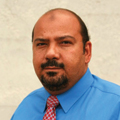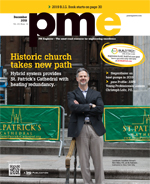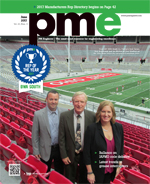
Tareq Ismailis a mechanical project manager for San Antonio, Texas-basedCNG Engineering. Ismail is directly involved in the design and construction of mechanical systems for health care, commercial, educational and municipal facilities. He has designed systems in projects for the city of San Antonio, Port San Antonio and the federal government.
His design experience includes HVAC, calculating heating and cooling loads, and designing DX and chilled cooling systems. Several of his projects have earned LEED designations. Ismail took time recently to speak to pme about topics such as green technologies, BIM software and the future of the plumbing engineering business.


